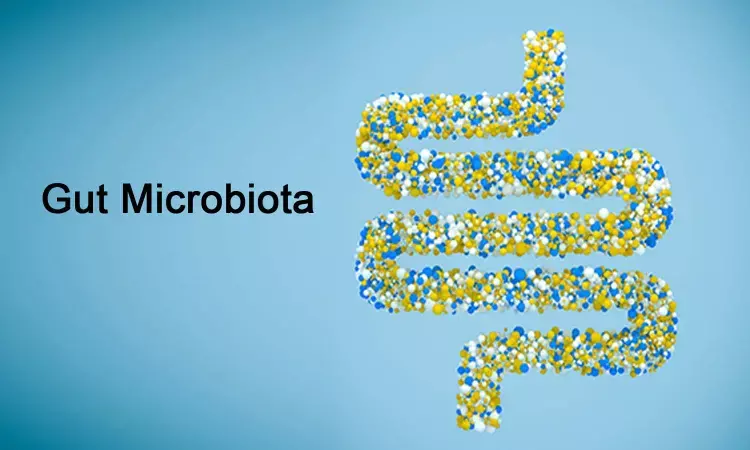- Home
- Medical news & Guidelines
- Anesthesiology
- Cardiology and CTVS
- Critical Care
- Dentistry
- Dermatology
- Diabetes and Endocrinology
- ENT
- Gastroenterology
- Medicine
- Nephrology
- Neurology
- Obstretics-Gynaecology
- Oncology
- Ophthalmology
- Orthopaedics
- Pediatrics-Neonatology
- Psychiatry
- Pulmonology
- Radiology
- Surgery
- Urology
- Laboratory Medicine
- Diet
- Nursing
- Paramedical
- Physiotherapy
- Health news
- Fact Check
- Bone Health Fact Check
- Brain Health Fact Check
- Cancer Related Fact Check
- Child Care Fact Check
- Dental and oral health fact check
- Diabetes and metabolic health fact check
- Diet and Nutrition Fact Check
- Eye and ENT Care Fact Check
- Fitness fact check
- Gut health fact check
- Heart health fact check
- Kidney health fact check
- Medical education fact check
- Men's health fact check
- Respiratory fact check
- Skin and hair care fact check
- Vaccine and Immunization fact check
- Women's health fact check
- AYUSH
- State News
- Andaman and Nicobar Islands
- Andhra Pradesh
- Arunachal Pradesh
- Assam
- Bihar
- Chandigarh
- Chattisgarh
- Dadra and Nagar Haveli
- Daman and Diu
- Delhi
- Goa
- Gujarat
- Haryana
- Himachal Pradesh
- Jammu & Kashmir
- Jharkhand
- Karnataka
- Kerala
- Ladakh
- Lakshadweep
- Madhya Pradesh
- Maharashtra
- Manipur
- Meghalaya
- Mizoram
- Nagaland
- Odisha
- Puducherry
- Punjab
- Rajasthan
- Sikkim
- Tamil Nadu
- Telangana
- Tripura
- Uttar Pradesh
- Uttrakhand
- West Bengal
- Medical Education
- Industry
Stroke related cavernous angiomas linked to gut bacteria in new study

Researchers have found in a nationwide study that the presence of abnormal bundles of brittle blood vessels in the brain or spinal cord, called cavernous angiomas (CA), are linked to the composition of a person's gut bacteria. The study has been published in the journal Nature Communications.
Previous studies in mice and a small number of patients suggested a link between CA and gut bacteria. This study is the first to examine the role the gut microbiome may play in a larger population of cavernous angioma patients.
Also known as cerebral cavernous malformations, these lesions which contain slow moving or stagnant blood, can often cause hemorrhagic strokes, seizures, or headaches. Current treatment involves surgical removal of lesions when it is safe to do so.
Led by scientists at the University of Chicago, the researchers used advanced genomic analysis techniques to compare stool samples from 122 people who had at least one cavernous angioma as seen on brain scans, with those from age- and sex-matched, control non-CA participants, including samples collected through the American Gut Project(link is external).
Initially, they found that on average the CA patients had more gram-negative bacteria whereas the controls had more gram-positive bacteria, and that the relative abundance of three gut bacterial species distinguished CA patients from controls regardless of a person's sex, geographic location, or genetic predisposition to the disease. Moreover, gut bacteria from the CA patients appeared to produce more lipopolysaccharide molecules which have been shown to drive CA formation in mice.
According to the authors, these results provided the first demonstration in humans of a "permissive microbiome" associated with the formation of neurovascular lesions in the brain.
Further analysis showed that some gut bacteria compositions could identify aggressive versus non-aggressive forms of the disease as well as those with recent symptomatic hemorrhages. Also, for the first time, they showed how combining gut bacteria data with results from blood plasma tests might help doctors better diagnose the severity of a brain disorder. The results, published in Nature Communications, support a growing body of evidence for the role of gut bacteria in brain health.
For further reference log on to:
Polster, S.P.; Sharma, A. et al. Permissive microbiome characterizes human subjects with a neurovascular disease cavernous angioma, May 27, 2020, Nature Communications; DOI: 10.1038/s41467-020-16436-w(link is external).
Dr Kamal Kant Kohli-MBBS, DTCD- a chest specialist with more than 30 years of practice and a flair for writing clinical articles, Dr Kamal Kant Kohli joined Medical Dialogues as a Chief Editor of Medical News. Besides writing articles, as an editor, he proofreads and verifies all the medical content published on Medical Dialogues including those coming from journals, studies,medical conferences,guidelines etc. Email: drkohli@medicaldialogues.in. Contact no. 011-43720751


